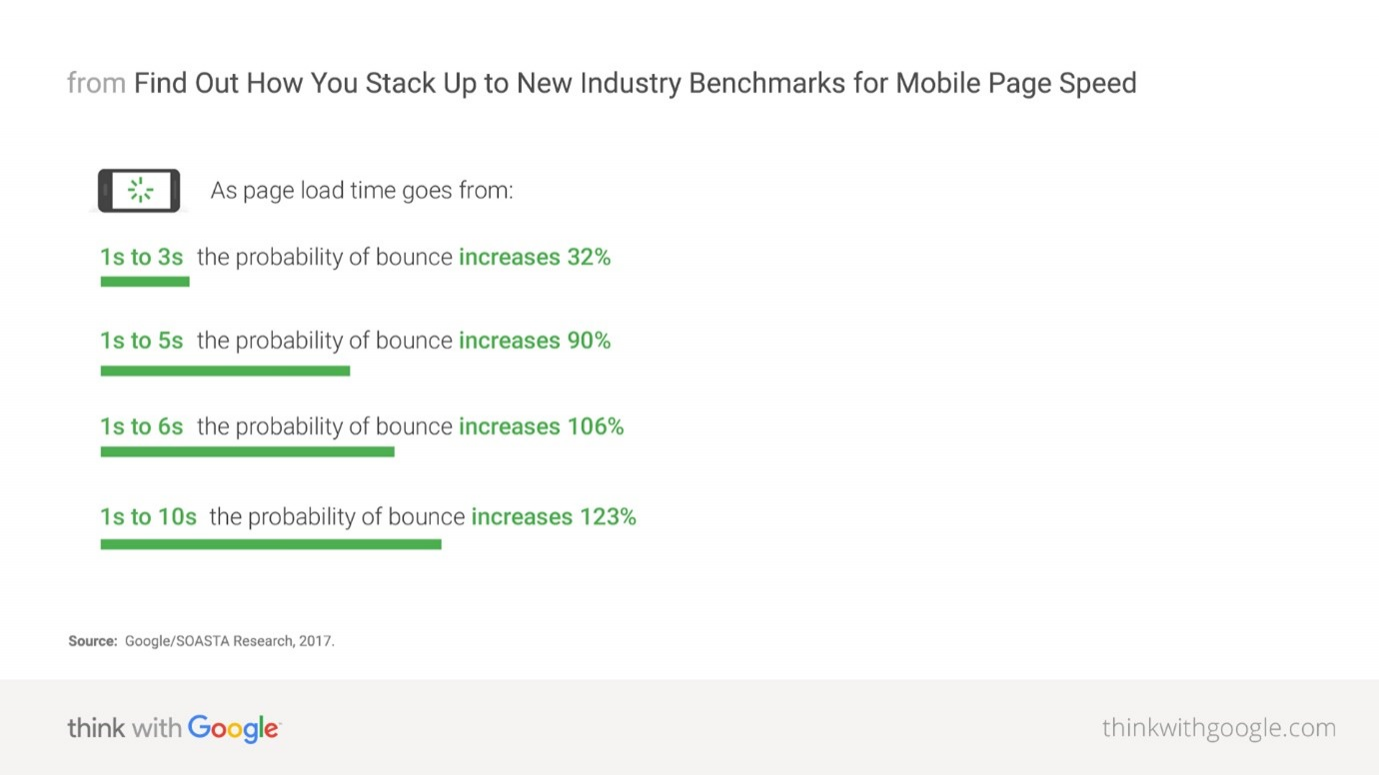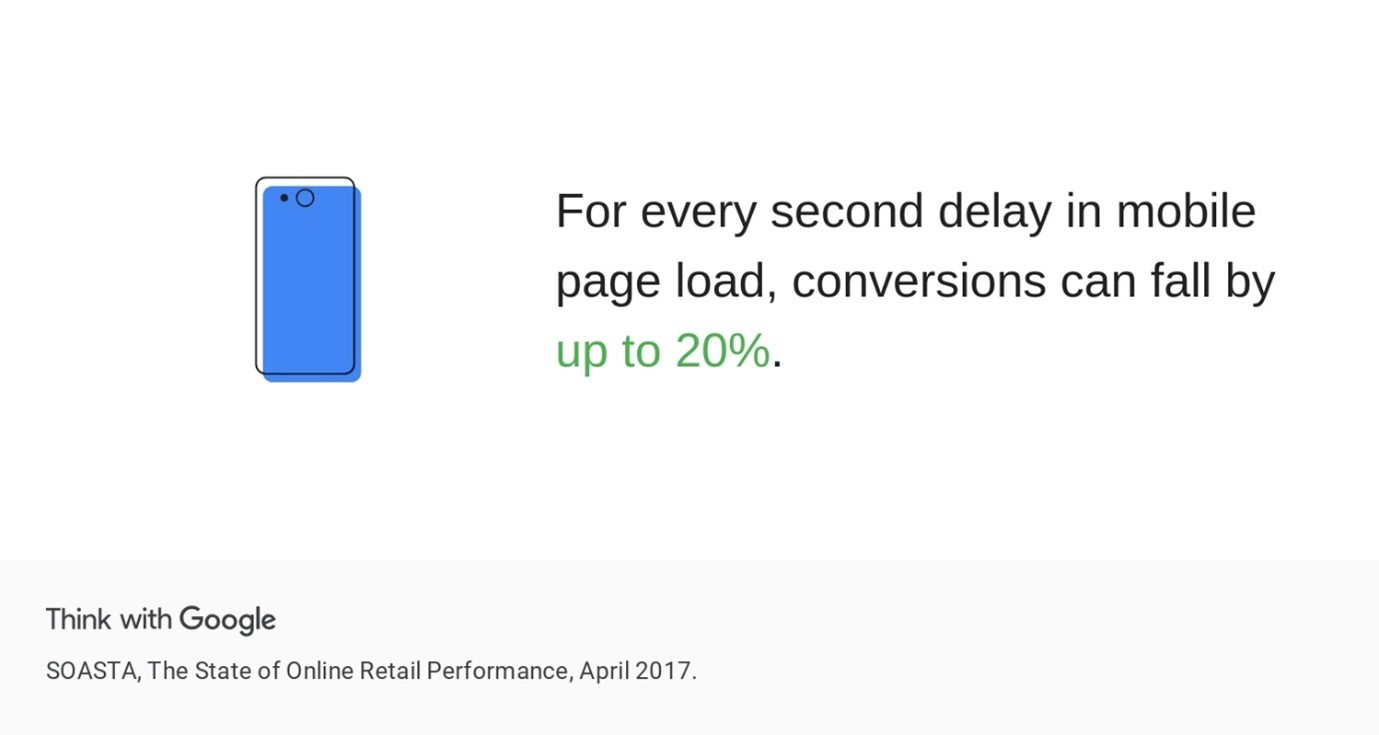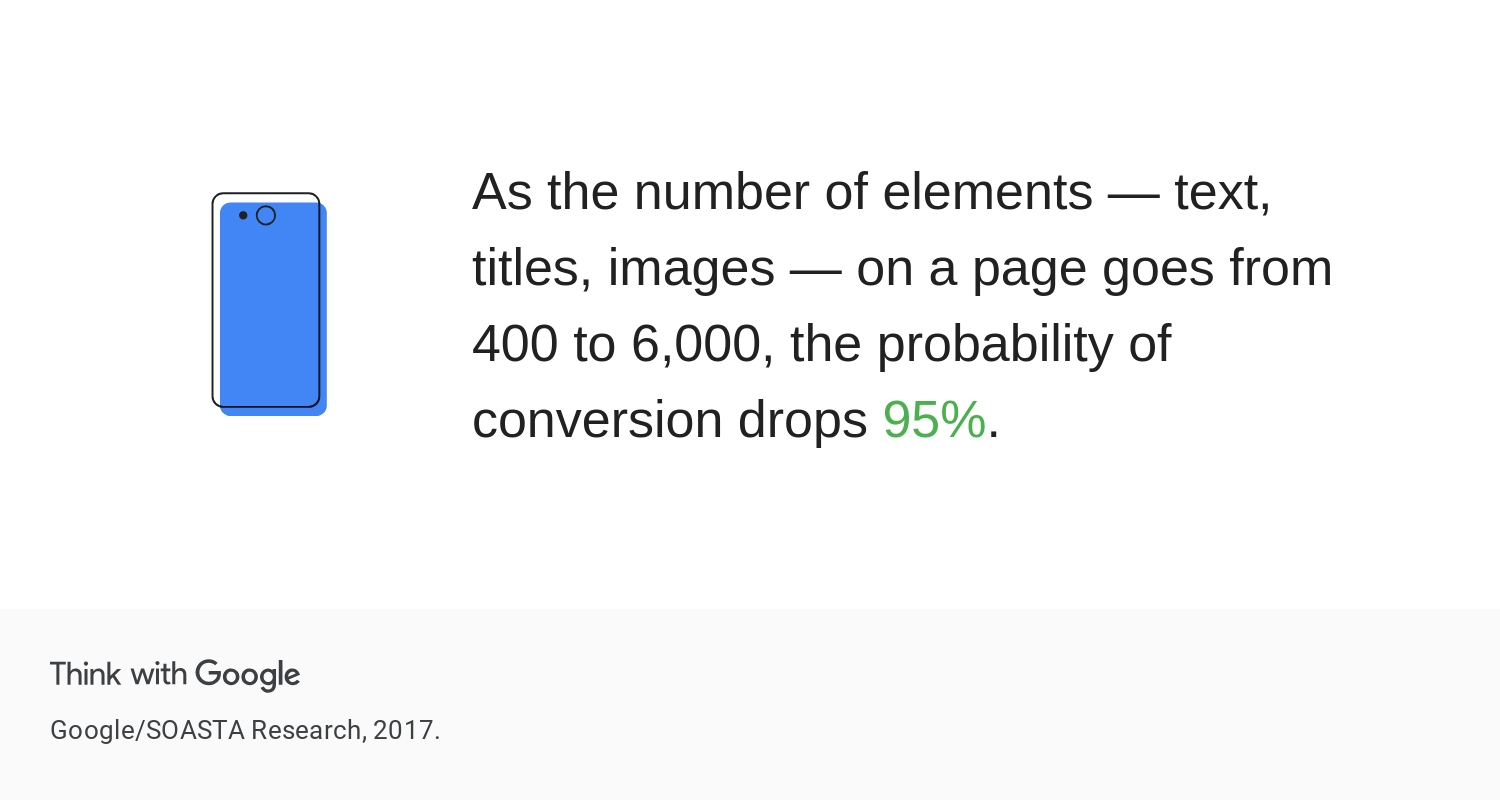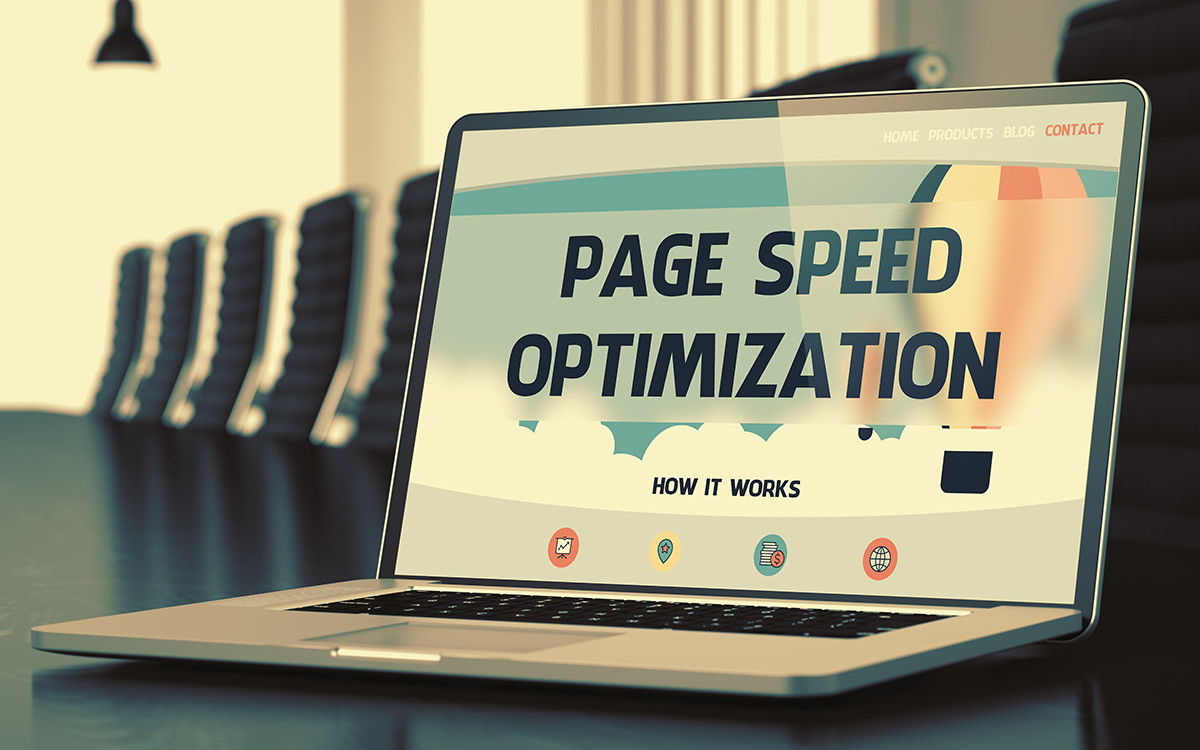Why your websites speed is important
What is website load time?
Website load time, means the time it takes for a web page to fully load on the screen. It includes all content, such as videos, text and images. To put it very simply; website load time tells us how fast content on a web page loads.
Many factors on your website can affect the load time; file sizes, server/host, inefficient code, too many plugins/extensions. Let’s look at why this metric is important for you.
1. SEO - Website speed affects Google ranking
In 2010 Google announced that your websites page speed will directly impact your website ranking. The page speed refers to the time a visitor has to wait until your landing page is completely loaded. Google looks at how you are doing compared to your competitors and will reward you if you are the fastest.
Many e-commerce sites will focus a lot on having a high SEO ranking, without taking their page speed into consideration in their continuous effort to beat the competitors. So, if you want to get ahead, don’t neglect your page speed.
In 2020 Google also announced that it will switch to mobile-first indexing, so keep in mind to put extra effort into optimizing your mobile page speed and user experience.
2. Conversion and bounce rate
As your page speed increases, so does the bounce rate. The bounce rate has a direct impact on your conversions.
If you look at Google’s research, you will see that as page load times goes from 1 second to 10 seconds, the bounce rate increases with 123%. If you experience a higher bounce rate than usually, check if your page load has increased. Run your site through a quick test here to receive a report from google


For every second delay you have on your Magento’s page load, conversions can fall with up to 20%.
Having a slow site can directly impact your bottom line. That’s why every second matters.


3. User experience
A fast site will provide a better and smoother experience for your customers. It’s vital to avoid any frustration in the shopper journey.
According to a 2019 study from unbounce.com, 70% of consumers says that page speed influences their likeliness to buy. Consumers say that a slow ecommerce site will make them less likely to purchase from them, and even less likely to visit them again in the future.
To put it more directly; you are hurting your conversion rate and bottom line if you are not prioritising a fast website. Your potential customers might just end up buying from a competitor instead.
So, how fast should your ecommerce site be?
To keep your bounce rate as low as possible, you should try and aim to have your website load between 1-3 seconds. This is best achieved by keeping your content to a minimum. Show only relevant text, images and other content to your customers.
So, keep it as lean as possible.


How do you achieve a fast website?
This is where vConnect comes in!
With a joint effort between our certified Magento 2 developers and our experienced designers, we can analyse your data and help you achieve a great website load.
You can also have a quick read here about the most common Magento mistakes that can cause a slow Magento 2 site and how to solve them.
Keep in mind that the benchmark changes every year and modern technologies arrives all the time, so if you want to stay in the load time game it is a continuous effort. We recommend keeping a budget for optimizing your site.
If you need help with your Magento sites load time, you can use the contact form below to receive a free consultation and request a website audit.

